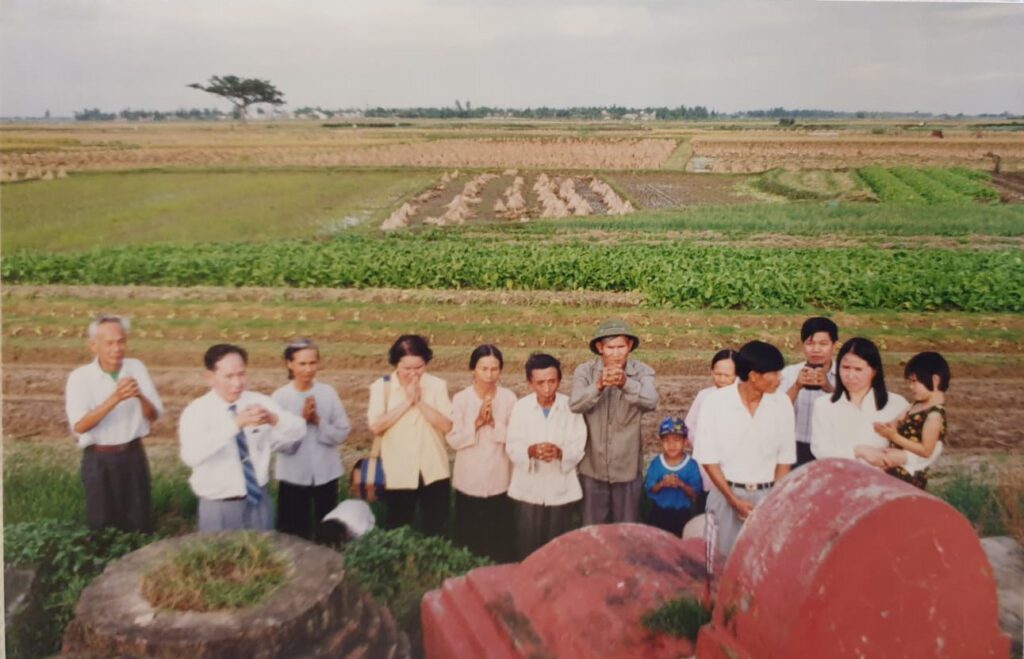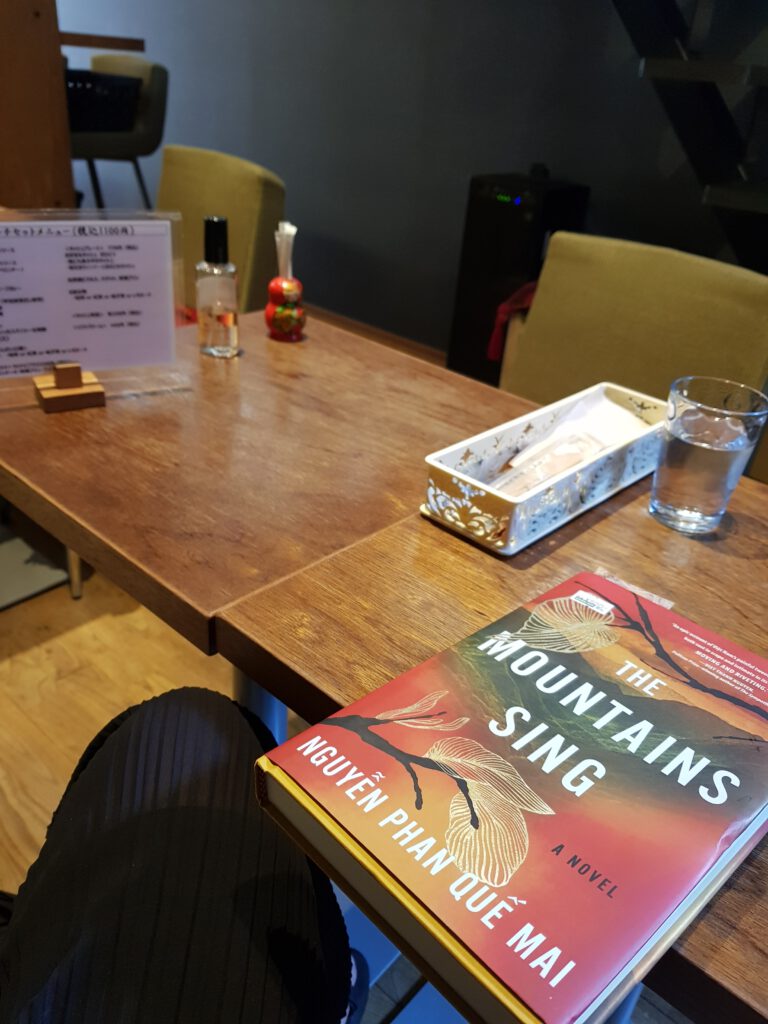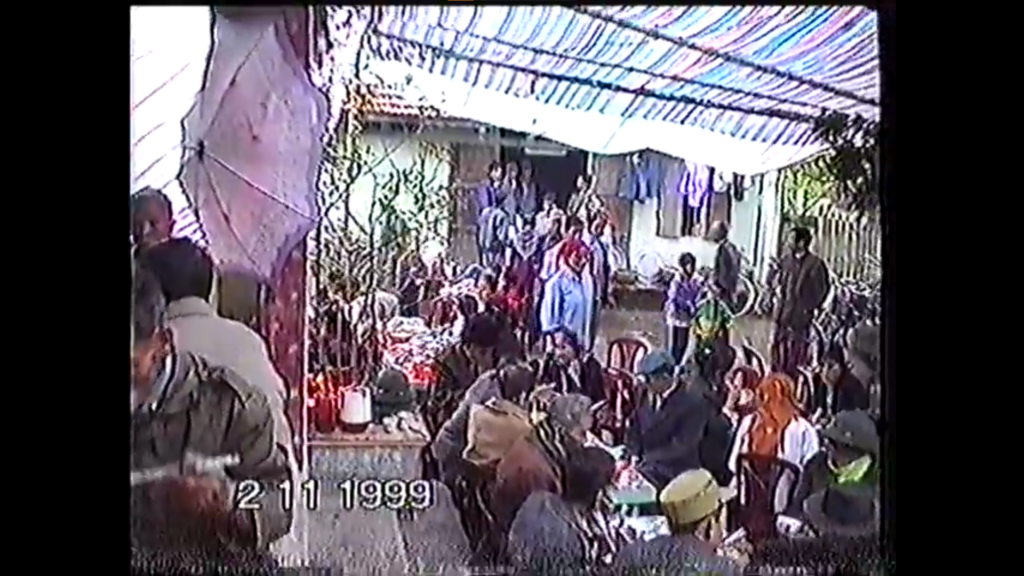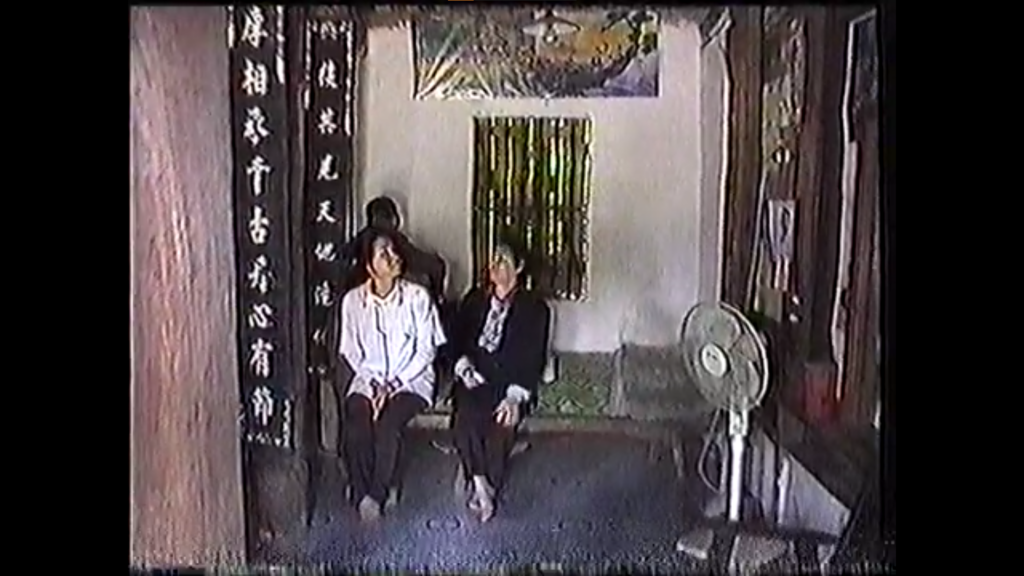dreaming of my ancestral home

it wasn’t until i was 24 when i began starting questions about my family’s heritage. as i recently finished Nguyễn Phan Quế Mai’s The Mountains Sing, i once again asked my parents, my aunt and my grandmother about our story. this time, i even dared to dream of my ancestral home.
how an oral exam in my graduate studies led to a path of self-discovery
in the years before the pandemic, one of my English Literature classes required me to take an oral exam on two topics, one i could choose myself. it was a 30-minute oral exam and it asked for 20 novels as a prerequisite reading along with additional secondary literature. with my first topic already covered loosely in class (colonialism in Canada and Australia), i chose a second one close to my heart: fiction written by Vietnamese American, Canadian and Australian authors – their stories united by the long histories of Vietnamese people and their many escapes across the world. even three years later, the books i read, the stories i experienced, the way i traced my own family’s history in the authors’ way of storytelling has made me look back on my own roots, feeling the connections to my parents and to my ancestors.
the modern history of Vietnamese people is one of pain but also of strength. yet in many media retellings of surviving war, it is often made a man’s tale on what it means to be strong: to overcome, to adapt, to be strong mentally and physically, whereas women seldom get to be more than sexual assault victims or waiting wives. In The Mountains Sing, strength was vulnerable. it was loving, caring, it was the strength of overcoming pain without inflicting it on others. yet it didn’t shy away from the horrors of war, the things we do for our families, the pain of loss and betrayal. i’ve always known my family to be strong and yet this perspective through the characters of The Mountains Sing allowed me to look at my family with new reaffirmation: being able to find kindness and love after decades of hardship is a kind of strength i hope to find.

video tapes of a 1999 trip to Vietnam
the novel did something else too: through the fictional life of Diệu Lan, i trace my very own. a pivotal moment in the novel is Lan’s loss of her family home due to communist land reforms leading to violence – forcing allegedly rich landowners to give up their land for the authorities to redistribute them to poorer peasants. cloaked as the liberation of exploited farmhands or other workers, it really was a violent revolt against assumed landowners where even a whisper of unfair pay was enough for landowners, farmers and their families to be murdered.
it was not until much later when i realised that these tragedies befell my paternal’s family too – both of my grandparents were farmers and owned land. vaguely, i remember one of my trips to Vietnam when i was a child. it was 1999 and my parents loved recording our trips with a handheld camera. it has been over 20 years since i have been to Vietnam – a lack of money but also my parents’ resentment towards the current government, and i am sure, some other more personal issues – led to over two decades of not seeing my other family in Vietnam. thanks to the video tapes of one of my visits to North Vietnam (my family is from the South) i am able to recall some of my memories of that trip.
perhaps owing to the tapes, i remember North Vietnam to be distinctively different: the house we visited was big but also seemingly ancient. wooden pillars, engravings of dragons and inscriptions in ancient Vietnamese, beds! although the beds were nothing like Western beds, as they were made of sturdy wood, topped off with a simple straw mat, a very different impression than simply sleeping on the floor in my maternal’s family home in the South. my family’s home in the South looked like a big DIY project but with love – new quarters that featured several but simple square-shaped structures to house my mother’s family of more than 20 people.
in the North, there was a huge party at the house – it was easily hundreds of people. in the recordings, my grandfather spoke to all of them, even held a speech. the whole event seemed to be of great significance for our family. i remember eating simple food, rice and boiled cabbage. i was getting sick frequently as a kid and was probably barred from eating anything that could upset my stomach. however, there was plenty – and it was a night spent with many people, happily drinking and eating away.

my ancestral home
the house we visited was grand, and its farm lands stretched far. last year, i asked my father: “did this all really belong to us, once upon a time?”, and he said yes, it was our family’s land until we had to relinquish most of it to the communist regime a long time ago. luckily, my great-grandfather was allowed to keep a smaller section of the compound and i assume this is the reason why we were able to return to that house many decades later, with distant relatives and friends welcoming us. a similar story played out for my grandmother’s side, even now these relatives still reside of what i guess would qualify as my ancestral lands.
it is strange to imagine a place – houses, lands and its people – to be tied to my family’s history. as a family of immigrants, there are next to no documents detailing our roots.
when the US withdrew its troops and left Vietnam to its communist future, my paternal grandparents burned documents and family pictures they had in fear of retaliation from the communist regime. having fled from the North and with my grandfather acting in a secretary position in the Southern Vietnamese military, he was punished for his military service and went to a re-education camp for two weeks. my mum’s side on the other hand, they were simply too poor to have any documents – my mum says she was born on the streets, and she actually doesn’t know her exact birth date. her parents did not know how to read or write and my mum’s siblings were the first to go to school. while my family’s history is a long one, due to history and class, i can trace back very little. if i were to imagine my family tree, my grandparents are its beginnings.
the thoughts of land having belonged to us, to picture generations of my family that had come and gone – it filled me with awe.

no missing pieces but already whole
is reading literature like The Mountains Sing a way for me to ‘reconnect with my roots‘?
i’ve never been one to ‘reclaim’ my identity, as for years now, i have been comfortable with who i am. some would perhaps say that i am not in touch with my Vietnamese side – i can’t read nor can i write in Vietnamese, i don’t write my name with diacritical marks nor do i feel the need to. on the other hand, German is my mother tongue but often i actively reject speaking in German when i can (my papers are almost always written in English, i stream in English, my preferred mode of communication is in English). this sometimes brings forth some confusion in both the German and Vietnamese community, as i reject the expectations set upon me from either side. as i see my existence as somewhere in-between, some might find it strange to be neither, to be both, to be all. the in-between is hard to define. i live between boundaries, between borders, i am always here and somewhere else. in my youth, this was quite confusing but learning to embrace this has taught me to value myself as a person, that i do not lack anything but i am whole no matter what. i don’t owe people an explanation – to Vietnamese, Germans, or anyone else who may find my heritage and my relation to it confusing.
perhaps the phrase of ‘reconnecting with one’s roots‘ is one i cannot really emphathise with because it implies lacking something prior. not knowing your roots means not knowing yourself – or so the implication. of course, discovering my family history deeply tied to the political upheavals of Vietnam has enrichened the way i understand myself and ‘the people who came before me’, my ancestors. yet, this discovery is neither ‘fixing’ my self, nor is it changing it – it is adding value to my heritage, my understanding of my family’s history that has been so incredibly extraordinary, even before i think of my roots in Vietnam. i never even dared to think of how my ancestors lived – it was not a question i entertained because my grandparents and parents came to Germany after all. the way Nguyễn Phan Quế Mai’s The Mountains Sing described the characters’ connection to their home but also the pain of losing it. suddenly, i saw my own family in this story. what was my family’s home like? how many generations did it take to build their house, build their farms?
dreaming
The Mountains Sing eerily read like my own family’s history. and it made me dream, imagine and picture my family’s house. perhaps it is also a dream of wealth, as growing up as an immigrant with only one working parent meant our chances for owning property was significantly smaller. usually, the stories about generations of families living in a house are stories about royals, higher-class aristocrats, or wealthy business families. never could i have imagined a story so close to my own ancestry to take place. of course, the thought of having an ‘ancestral home’ sounded like a dream, like an immigrant’s dream of owning a house like so many other middle and upper class families i grew up with did.
though more than my own struggle with class and race, the thought of the faceless people who lived on the land of my ancestors moved me. i began visualising the smell of Vietnamese food. how the wind’s breeze would pass through the buildings during summer. the sound of children playing. what it was like to sleep on a wooden bed, a straw mat. rice fields, banana trees and fresh homegrown fruit. i realised: finally, i dreamt of Vietnam not as a place of violence and bombs, but a place of safety, protection, comfort. despite addressing the painful lives of its characters so vividly, The Mountains Sing never failed to stay beautiful.
if you have enjoyed this article, please consider leaving me a small tip on Ko-Fi. any support is greatly appreciated to get me through my PhD studies!